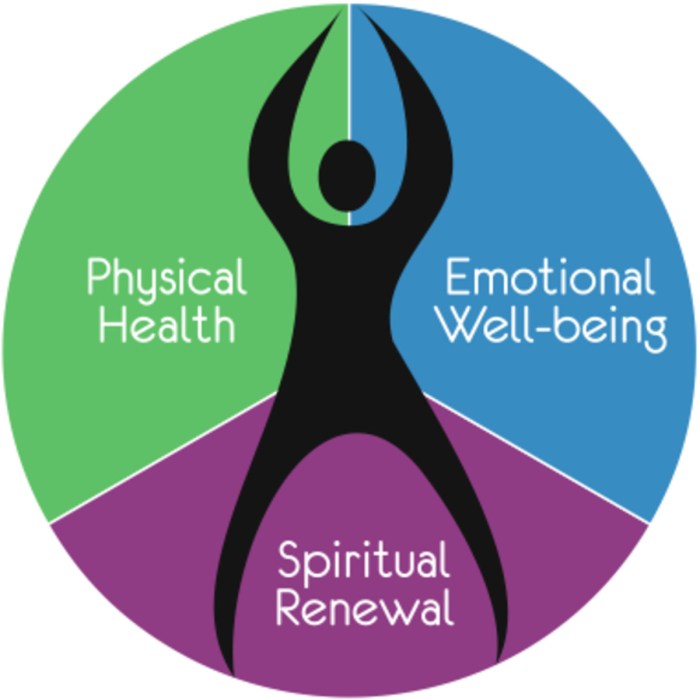Holistic medicine is sometimes viewed as being unscientific – Holistic medicine, a practice that emphasizes the interconnectedness of physical, mental, and emotional well-being, has often faced skepticism due to perceived scientific shortcomings. However, this multifaceted approach to healthcare deserves closer examination, revealing a rich history, evidence-based efficacy, and potential for integration with conventional medicine.
Despite the criticisms, holistic medicine has gained traction due to its comprehensive approach to patient care and its emphasis on self-care and patient education. It offers a unique perspective on health and healing, recognizing the mind-body connection and the importance of treating the whole person rather than just the symptoms.
Scientific Foundations of Holistic Medicine

Holistic medicine is a comprehensive approach to health and healing that considers the whole person, including their physical, mental, emotional, and spiritual well-being. It is based on the philosophical principles of holism, which emphasizes the interconnectedness of all things and the importance of treating the whole person rather than just their symptoms.
Holistic medicine has a long history, dating back to ancient Greece and China. In recent years, it has gained increasing popularity as people have become more interested in natural and alternative approaches to health. There is a growing body of evidence-based studies that support the efficacy of holistic approaches to treating a wide range of conditions, including chronic pain, anxiety, and depression.
Holistic Approaches to Health, Holistic medicine is sometimes viewed as being unscientific
Holistic practitioners believe that the body, mind, and spirit are interconnected and that imbalances in one area can affect the others. They use a variety of complementary therapies to treat patients, including acupuncture, herbal medicine, yoga, and massage therapy. Holistic practitioners also emphasize the importance of nutrition, exercise, and stress management.
When assessing patients, holistic practitioners take into account the patient’s physical symptoms, as well as their mental, emotional, and spiritual health. They also consider the patient’s lifestyle and environment. This comprehensive approach allows holistic practitioners to develop individualized treatment plans that address the root causes of the patient’s health problems.
Criticisms of Holistic Medicine
Holistic medicine has been criticized for its lack of scientific evidence. Some critics argue that holistic therapies are not effective and that they may even be harmful. However, there is a growing body of evidence to support the efficacy of holistic approaches.
A number of studies have shown that holistic therapies can be effective in treating a variety of conditions, including chronic pain, anxiety, and depression.
Another criticism of holistic medicine is that it is not regulated. This means that anyone can call themselves a holistic practitioner, even if they do not have the proper training or experience. As a result, it is important to do your research before choosing a holistic practitioner.
Make sure that the practitioner is qualified and experienced and that they have a good reputation.
Integration of Holistic and Conventional Medicine
Holistic medicine can be integrated with conventional medicine to provide a comprehensive approach to health and healing. Holistic practitioners can work with conventional doctors to provide patients with the best possible care. For example, a holistic practitioner may work with a conventional doctor to develop a treatment plan for a patient with cancer.
The holistic practitioner may provide the patient with acupuncture, herbal medicine, and other complementary therapies to help manage the side effects of cancer treatment.
The integration of holistic and conventional medicine is becoming increasingly common. As more people become interested in natural and alternative approaches to health, holistic practitioners are being welcomed into more conventional medical settings.
The Role of Patient Education
Patient education is an important part of holistic medicine. Holistic practitioners believe that patients need to be informed about their health and treatment options in order to make informed decisions. They also believe that patients need to be active participants in their own healing process.
Holistic practitioners provide patients with information about their health conditions, treatment options, and lifestyle changes that they can make to improve their health. They also teach patients self-care techniques that they can use to manage their own health. Patient education is an essential part of holistic medicine and it helps patients to take an active role in their own healing process.
General Inquiries: Holistic Medicine Is Sometimes Viewed As Being Unscientific
Is holistic medicine scientifically valid?
While some holistic practices lack rigorous scientific evidence, others have been supported by clinical studies. Holistic medicine emphasizes a patient-centered approach and encourages self-care, which can complement conventional treatments.
What are the benefits of holistic medicine?
Holistic medicine promotes a comprehensive approach to health, addressing the physical, mental, and emotional well-being of patients. It can improve overall health outcomes, reduce stress, and enhance self-care practices.
How can I incorporate holistic medicine into my healthcare routine?
Consult with a qualified holistic practitioner who can assess your individual needs and recommend appropriate therapies. Holistic approaches can be integrated alongside conventional treatments, providing a complementary and supportive approach to healthcare.


